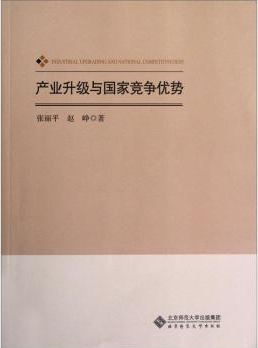Industrial Upgrading and National Competitive Advantage
Nov 04,2015
 |
|
Industrial Upgrading and National Competitive Advantage |
Zhang Liping, Research Department of Foreign Economic Relations of DRC, and Zhao Zheng, Institute of Economic and Resource Management of Beijing Normal University
Industrial reform and development could shore up and guarantee national economic and social development. China is now the second largest economy, the second largest manufacturer, the number one exporter, the second largest importer, the major FDI destination among developing countries and the fifth biggest source of FDI around the globe. And China's economy is becoming more interconnected and intertwined with global economy. The future period of time will be the key stage for China to accomplish transformation of development model and to advance the opening-up policy of mutually beneficial and win-win cooperation, and therefore, development of national competitive advantages and industrial upgrading should be put in first place in economic and social progress. Against the backdrop of new situations and times, and in face of new historical tasks, it's pressing for China to stride forward in innovation based on present development, push forward industrial upgrading from strategic heights, advance industrial upgrading through pilot theoretical practice and foster, consolidate and strengthen China's national competitive advantages in the new era, thus promoting national competence across the board.
This book focuses on issues of industrial upgrading and national competitive advantage. And based on relevant findings, it goes further to discuss theoretical implications of industrial upgrading against the backdrop of globalization and the inner relationship between industrial upgrading and national competence under the framework of global value chain, sorts out the historical process, current performance and major issues about China's industrial upgrading after a comparative study of a number of international cases, and proposes strategic plans and policy options to promote industrial upgrading as well as national competitive advantage. This book consists of eight chapters in three parts. Part One (Chapters 1 and 2) is about theoretical researches that provide a factual and theoretical basis for the illustration of following chapters. Part Two (Chapters 3, 4 and 5) discusses international experience. It studies the history and trend of global competence pattern from the perspective of international trade, analyzes and summerizes national competence strategies of major developed countries and regions as well as emerging industrial countries and studies the upgrading and restructuring of Japan's foreign trade as a typical case to offer reference to international experience concerning industrial upgrading and national competitive advantage. Part Three (Chapters 6, 7 and 8) is about China's strategic options. In view of the internal and external economic environment facing China and the current development and problems of China's industrial upgrading, it proposes a general strategy and approach options to promote industrial upgrading and national competitive advantage.
This book is in line with the bidding research topics sponsored by the Development Research Center of the State Council. It seeks to carry out a serious, comprehensive, objective and forward-looking study on industrial upgrading and national competitive advantage so as to provide relevant inspirations, views and suggestions for theoretical and practical reference. This book is co-written by Zhang Liping, Director of Research Office of Research Department of Foreign Economic Relations of DRC, and Zhao Zheng, Deputy Director-general of China Research Center for Market Economy attached to Institute of Economic and Resource Management of Beijing Normal University. This book tries to explore possible drivers for China's industrial upgrading and national competitive advantage and the occurrence of inaccuracies or even oversights and omissions in this book are inevitable and suggestions are most welcomed and appreciated. Advancing industrial upgrading and turning China into a prosperous and strong country are the two long-lasting themes in China's development endeavour. And as we're born into this great times, it's our responsibility to witness, contribute to and pass on such aspirations. We're ready to join hands with all of you to contribute to China's sustainable stability and prosperity.














